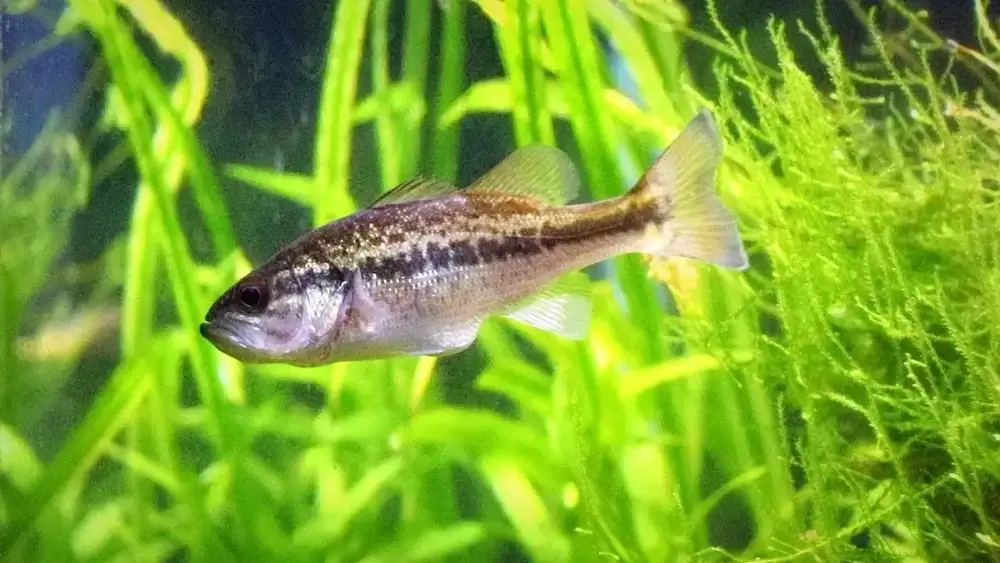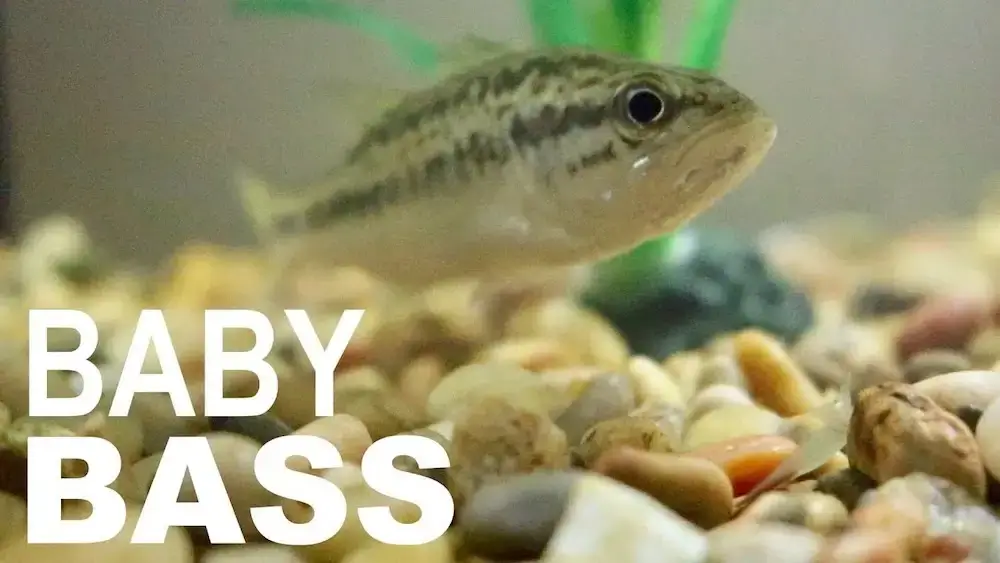If you are someone who loves spending time outdoors fishing, you may have come across baby largemouth bass. These fish can be quite challenging to catch, but what do they eat?
This blog post will discuss everything you need to know about what baby largemouth bass eat! We will cover what they like to snack on and what they like to feast on when they get a little bit older.
What Do Baby Largemouth Bass Eat?

Baby largemouth bass love to eat small insects and crustaceans. This includes perch, sunfish, minnows, caddisflies, sowbugs, and shrimp. They will also eat small fish and tadpoles.
It is important to give your baby largemouth bass a diverse diet to grow healthy and strong. Be sure to include plenty of live food in their diet and frozen or freeze-dried food.
Keep a close eye on your baby largemouth bass, as they can be easy prey for larger fish.
How Often Should a Tiny Baby Bass Be Fed?
Like any other living being, baby largemouth bass need to eat to survive. Depending on their size, you should be feeding them a couple of times a day. As they get bigger, you can space out the feedings every other day.
Overfeeding can lead to health problems for your fish, so it’s important to be mindful of how much you’re giving them.
There are a few different options when it comes to what they should eat. Baby largemouth bass can eat small insects like crickets or mealworms and tiny fish.
You can also give them baby brine shrimp or other commercially available fish food types. As they get older, you can introduce them to live bait like earthworms or small frogs.
Whatever you decide to feed your baby largemouth bass, the food must be fresh and clean.
Ensure to thoroughly wash any insects or fish before feeding them to your fish. This will help reduce the risk of introducing harmful bacteria into your aquarium.
How Much Does A Baby Bass Eat?
When it comes to what do baby largemouth bass eat, there are a few things you need to take into account.
The first is the size of your fish. You don’t want to overfeed or underfeed them.
The second is what kind of food you’re feeding them. There are many different options out there, and it can be tough to decide what’s best.
In general, you want to feed your baby bass a balanced diet. That means providing them with both protein and carbohydrates. For example, you can feed them brine shrimp, bloodworms, or other small fish.
If you’re not comfortable catching your food, you can also buy fish food at the store. Just make sure to read the label and choose a high in protein and low in fat food.
Many people also choose to feed their baby bass live food. This can be a great option, but it can also be expensive. If you decide to go this route, make sure you get a good quality food source.
Does baby largemouth bass eat live bait?
Yes, baby largemouth bass will eat a live bait. They are attracted to movement and often strike at live bait before anything else. This makes them a popular choice for fishing enthusiasts. Some of the most common live baits used for baby largemouth bass include worms, minnows, and insects.
Can I Keep My Baby Largemouth Bass in a Tank?

Yes, you can keep your baby largemouth bass in a tank, but you will need to provide them with food. Baby largemouth bass eats everything from insects to small fish. You can purchase food specifically for baby largemouth bass at most pet stores.
Ask a pet store employee for advice if you are not sure what to feed your baby largemouth bass. They will be able to recommend a food that will provide your baby largemouth bass with the nutrients they need to grow and thrive.
Make sure you clean your tank regularly to ensure your baby largemouth bass stays healthy. Rinse the tank with fresh water and use a gentle soap to clean it every week.
Your baby largemouth bass will grow into healthy adult fish if you follow these tips.
How big will my baby largemouth bass get?
Your baby largemouth bass will grow anywhere from four to ten inches long, depending on the species and what they are eating. Baby largemouth bass typically eats small insects, crustaceans, and other fish.
As they get older, they will start to eat larger prey items. It is important to make sure that you are providing your baby largemouth bass with a balanced diet to grow to their full potential.
What Should I Do If My Baby Largemouth Bass Dies?
If your baby largemouth bass dies, the first thing you should do is to find out what caused its death. Several things can kill baby largemouth bass, including parasites, poor water quality, and being preyed on by other fish.
Once you have determined the cause of death, you can take steps to prevent it from happening again.
If you cannot determine the cause of death, or if you think it may have been caused by something you did, you should take your baby largemouth bass to a veterinarian or fish health specialist for an examination.
They will be able to tell you what killed your fish and what steps need to be taken to prevent it from happening again.
If your baby largemouth bass has died, the best thing you can do is learn from your mistake and make sure it doesn’t happen again. Prevention is always the best cure, so make sure you do everything you can to keep your fish healthy and happy.
Conclusion
Now you know what do baby largemouth bass eat. As they grow, they will consume other types of prey, such as insects, crustaceans, and small fish. So make sure you keep an eye on your little one and continue to stock their food supply with various live baits.

